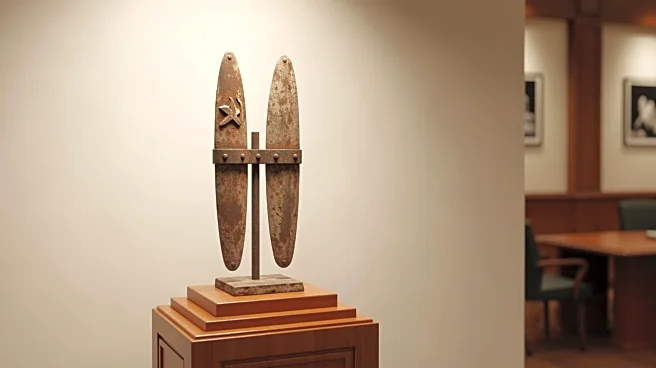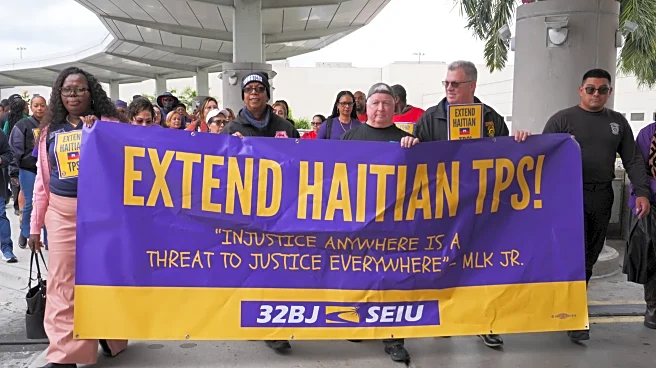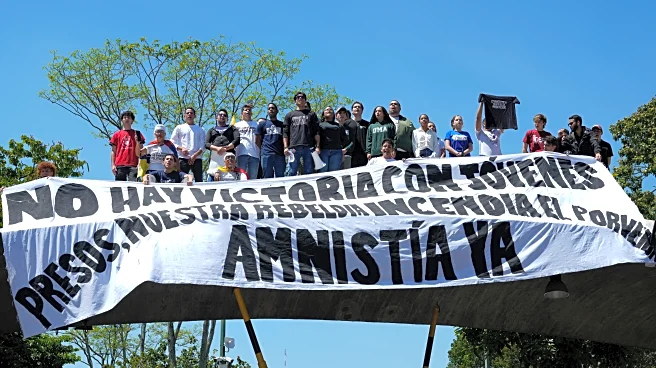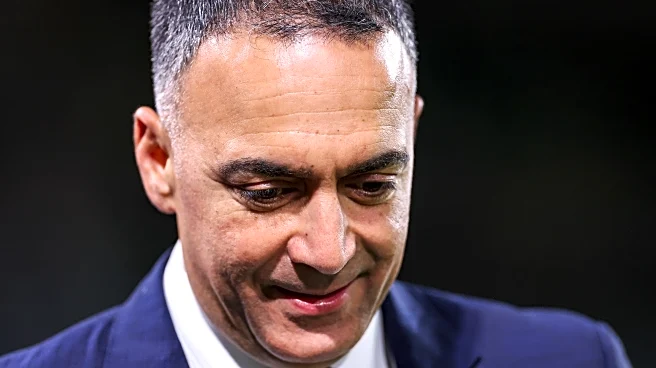What's Happening?
U.S. Defense Secretary Pete Hegseth visited Vietnam to strengthen the partnership between the two nations, focusing on healing the scars of the Vietnam War. During his visit, Hegseth handed over a leather box, a belt, and a small knife, which were wartime
artifacts taken by U.S. soldiers. This gesture is part of broader reconciliation efforts, which have included the return of letters, identification tags, and photographs in recent years. The visit marks 30 years of diplomatic ties and two years since the countries upgraded their relations to a Comprehensive Strategic Partnership. Cooperation on postwar issues, such as clearing unexploded ordnance and cleaning up dioxin from former U.S. air bases, remains a key aspect of U.S.-Vietnam relations.
Why It's Important?
The return of wartime artifacts and the reaffirmation of partnership are significant for both countries. For the U.S., it demonstrates a commitment to addressing the legacies of the Vietnam War and fostering goodwill. For Vietnam, it provides political cover to expand relations with a former adversary. This cooperation is crucial as Vietnam navigates its foreign policy, especially in light of its recent interactions with North Korea and potential military purchases from Russia. The visit underscores Vietnam's strategy of balancing relations with major powers, including the U.S., amid regional uncertainties.
What's Next?
The continuation of postwar cooperation projects is expected to stabilize U.S.-Vietnam relations and potentially lead to deeper defense ties. However, Vietnam's recent diplomatic activities, such as the visit to North Korea and discussions with Russia, indicate a cautious approach to its foreign policy. The U.S. will likely continue to engage Vietnam on its terms, respecting its strategic autonomy while seeking to strengthen defense cooperation.
Beyond the Headlines
The visit highlights the complex dynamics of U.S.-Vietnam relations, where historical reconciliation is intertwined with contemporary geopolitical strategies. Vietnam's engagement with multiple global powers reflects its desire to maintain strategic autonomy and leverage its position in the Indo-Pacific region. The U.S. must navigate these dynamics carefully to maintain and enhance its influence in Southeast Asia.
















